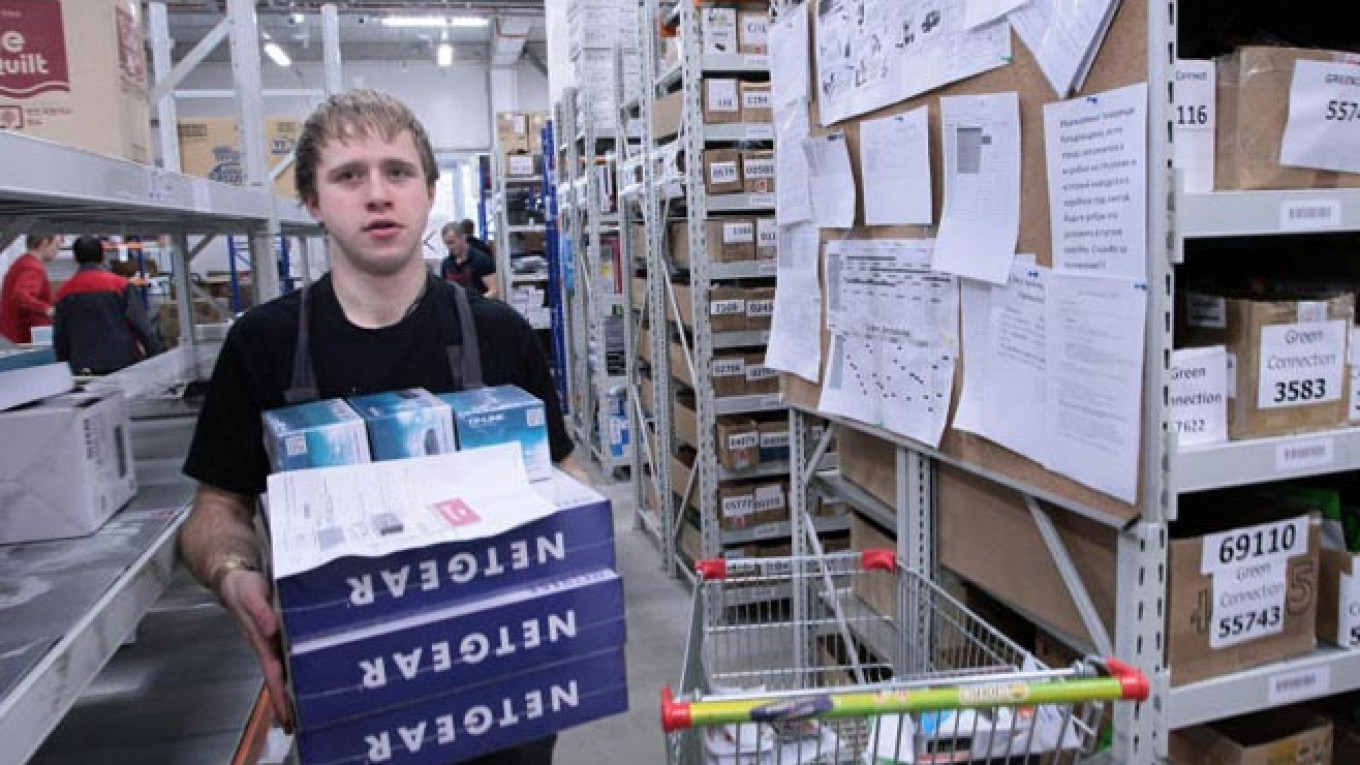As e-commerce continues to boom, online retailers are discovering a market in Russian regions that are hungry for options and patient when it comes to service.
For the residents of Russia's farthest-flung corners, e-commerce offers unprecedented access to a wide assortment of goods, said Martijn Peeters, partner at international consulting firm PricewaterhouseCoopers, at a conference hosted by The Moscow Times on Thursday.
Television shopping channels have notably high sales in the regions for precisely the same reason, he added.
Internet companies are noticing and targeting this potential. "There is not a lot of very well-developed offline retail infrastructure in the regions, so for companies like us and some of the other e-commerce players, it is a big opportunity," said Nils Chrestin, managing director and CFO of online fashion retailer Lamoda.
Internet penetration is still relatively low in Russia — about 53 percent in 2012, according to the World Bank — but as it grows, so too does e-commerce.
Four million Russians began purchasing goods online in 2013, a 13 percent increase from 2012, said Vitaly Zhigulin, executive director of the Association of Online Vendors, or AKIT.
"The point of growth is in the regions, without a doubt … growth is 50 percent higher in the regions than in central cities," Zhigulin said.
The number of Internet users grew fastest last year in the Southern, North Caucasian and Siberian Federal Districts, he added.
The total volume of sales over the Internet in Russia climbed 30 percent to a total of $17 billion in 2013, he said, and is expected to continue at the same rate for the next five years.
"We attribute this to the spread of mobile internet and of internet in small towns," Zhigulin said.
In establishing operations in the regions, companies need to remember that these customers are fundamentally different from those in Moscow and St. Petersburg.
Many are new to the Internet and distrustful of purchasing online. And while Russian consumers still rely heavily on cash payments — 69 percent of online purchases were paid for in cash last year and only 14 percent by credit card, according to AKIT — "in the regions they might not have a credit card at all," Peeters said.
The level of service expected is also substantially lower. Customers in the regions are accustomed to lengthy delivery times and may be willing to wait weeks to receive their purchase, Peeters said.
This is no reason to let standards fall, however, as those companies who are first to provide a higher level of service will quickly gain market share, he added.
There is another practical reason to focus on delivery times. "If people order in the regions via Russian Post and have to pick up the package at the post office, a significant percentage decide by the time it arrives, which can be four weeks later, that they are not interested any more," Peeters said.
In-house delivery services are one of the hallmarks of leading Russian e-commerce companies such as Ozon.ru, Ulmart and Lamoda, who have had to find solutions to poor logistical infrastructure and the high cost of paying an external courier.
Developing infrastructure in the regions is "one of the key challenges in Russia," and Lamoda is committed to expanding its next-day delivery service to these areas, Chrestin said. The firm's logistics operation services more than 25 cities across Russia and Kazakhstan.
The reason for this focus is simple: the company's growth is "proportionally higher in the regions," Chrestin said.
Forty percent of Lamoda's sales currently come from Moscow and 60 percent from other areas of Russia, he added.
Contact the author at d.damora@imedia.ru
A Message from The Moscow Times:
Dear readers,
We are facing unprecedented challenges. Russia's Prosecutor General's Office has designated The Moscow Times as an "undesirable" organization, criminalizing our work and putting our staff at risk of prosecution. This follows our earlier unjust labeling as a "foreign agent."
These actions are direct attempts to silence independent journalism in Russia. The authorities claim our work "discredits the decisions of the Russian leadership." We see things differently: we strive to provide accurate, unbiased reporting on Russia.
We, the journalists of The Moscow Times, refuse to be silenced. But to continue our work, we need your help.
Your support, no matter how small, makes a world of difference. If you can, please support us monthly starting from just $2. It's quick to set up, and every contribution makes a significant impact.
By supporting The Moscow Times, you're defending open, independent journalism in the face of repression. Thank you for standing with us.
Remind me later.






